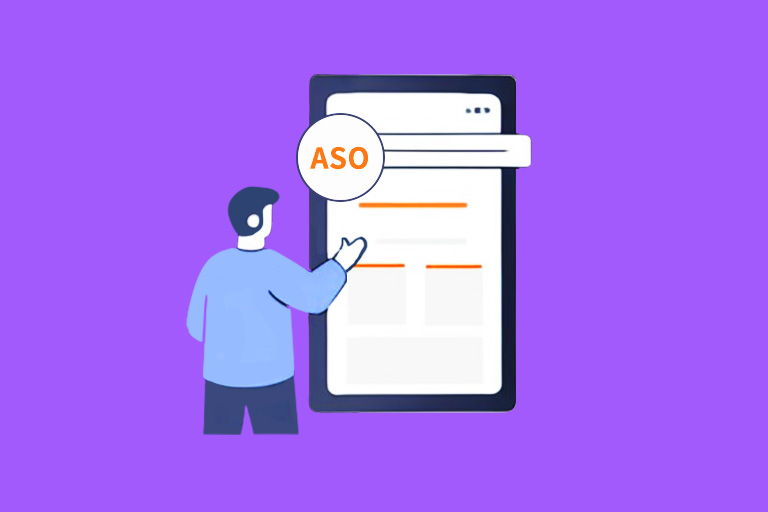Conducting keyword research and optimizing app metadata in a language you are not fluent in can be challenging, but it is essential for successful App Store Optimization (ASO) in different regions. This article provides insights into conducting keyword research and crafting metadata in a foreign language, using real data and best practices to guide your strategy.
Before diving into keyword research, it's important to understand the concept of localization. Localization goes beyond mere translation; it involves adapting your app's content to fit the cultural context and language nuances of the target market. According to Statista, as of the first quarter of 2021, the top languages by share of app downloads in the Google Play Store were English (28.9%), Hindi (7.9%), and Brazilian Portuguese (7.7%). This data shows the significance of targeting specific languages for app expansion.
In 2020, Sensor Tower reported that the keyword "juegos" (games in Spanish) was among the top-searched terms in the Spanish-speaking markets.
Conducting keyword research and crafting metadata in a foreign language requires a deep understanding of the target culture, native language expertise, and the use of relevant ASO tools.
By partnering with native speakers, utilizing local keyword research tools, analyzing local competitors, and localizing your metadata, you can effectively optimize your app's presence in global markets.
Regular updates and A/B testing are also crucial to refine your strategy and ensure that your app resonates with users in different regions. With a thoughtful approach to localization, your app can achieve greater visibility and success across diverse app stores.
Understanding the Importance of Localization
Before diving into keyword research, it's important to understand the concept of localization. Localization goes beyond mere translation; it involves adapting your app's content to fit the cultural context and language nuances of the target market. According to Statista, as of the first quarter of 2021, the top languages by share of app downloads in the Google Play Store were English (28.9%), Hindi (7.9%), and Brazilian Portuguese (7.7%). This data shows the significance of targeting specific languages for app expansion.
Conducting Keyword Research in a Foreign Language
Optimize with Local Keywords
To ensure accuracy and cultural relevance, partner with native speakers or professional translators who are also knowledgeable about ASO. They can help identify the nuances and search behaviors unique to the target language and culture.Use Local Keyword Research Tools
Utilize keyword research tools like FoxData's Keyword Explorer that provide data for the specific region and language you are targeting. For example, FoxData offer localized keyword insights that can help you understand which terms are trending in different countries.In 2020, Sensor Tower reported that the keyword "juegos" (games in Spanish) was among the top-searched terms in the Spanish-speaking markets.
Analyze Local Competitors
Study competitors in the target market to identify the keywords they are targeting. Look for patterns in their metadata and user reviews to find potential keywords. For instance, analyzing top-performing apps in the French App Store might reveal that "jue" (game) and "apprendre" (learn) are frequently used terms in app descriptions and titles.
Crafting Metadata in a Foreign Language
Translate and Localize Your App Title and Description
Translate your app title and description into the target language. Do not rely solely on automated translation services; ensure that the translation is contextually appropriate and localized. For example, the word "bank" in English could translate to "banque" (French), "Banco" (Spanish), or "Bank" (German), depending on the region.Optimize with Local Keywords
Incorporate localized keywords into your app's title, subtitle, and description. These should be naturally woven into the text to maintain readability while optimizing for ASO. For instance, if "fitness" is a popular search term in the German App Store, you might include "Fitness-App" in your app title or description.Regularly Update and Test Metadata
Language and trends evolve, so it's important to regularly update and test your metadata. A/B testing can help determine which keywords and phrases resonate best with the local audience.
Conclusion
Conducting keyword research and crafting metadata in a foreign language requires a deep understanding of the target culture, native language expertise, and the use of relevant ASO tools. By partnering with native speakers, utilizing local keyword research tools, analyzing local competitors, and localizing your metadata, you can effectively optimize your app's presence in global markets.
Regular updates and A/B testing are also crucial to refine your strategy and ensure that your app resonates with users in different regions. With a thoughtful approach to localization, your app can achieve greater visibility and success across diverse app stores.







